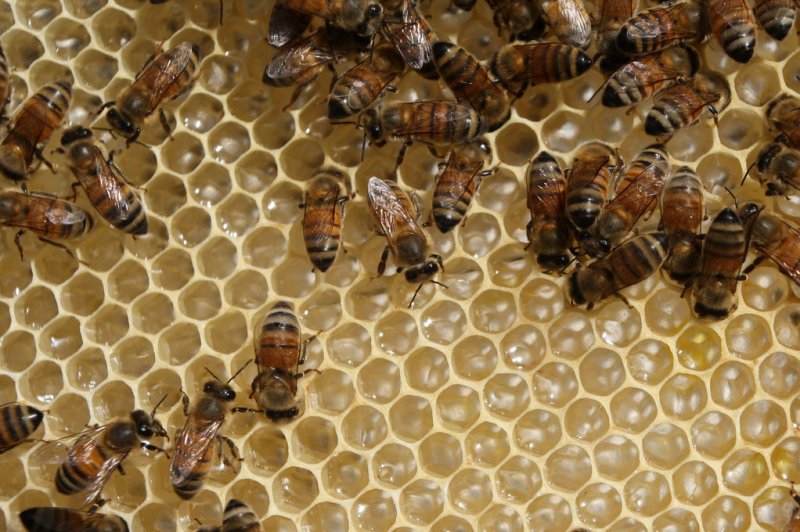A warmer than usual winter in Texas means bees are more active. Pictured, a rack of honey bees at an apiary in El-Bureij, in the central Gaza Strip, on April 16, 2016l. Photo by Ismael Mohamad/UPI |
License Photo
Jan. 27 (UPI) -- For the most part, bees keep to their hives during the colder winter months. But researchers at Texas A&M University have been fielding a large number of calls from residents concerned about an uptick in bee activity.
"It's unusual this time of year to be getting calls about bee activity, but the warmer-than-usual temperatures this winter have allowed the bees to be much more active than they would be normally," entomologist Molly Keck said in a news release.
When it's cold, bees congregate at the center of the hive where honey reserves are stored. They constantly rotate positions, working their way from the outside of the cluster to the inside and then back out again. The honey sustains the bees, and the constant movement keeps the workers and the queen warm.
But if honey reserves are insufficient, bees must sometimes venture out to collect more food during winter months. The bees typically wait until warmer days to forage and to eliminate food waste from the hive.
"Honey bee activity increases on warm or sunny days after rainy or really cold weather," Keck explained. "When winter temperatures finally warm up, the bees, which have been cooped up trying to stay warm, leave to forage. Additionally, the rain we've had recently has also gotten some wildflowers to grow, so the bees now have an opportunity to pick up some pollen."
Keck says most of the concerned calls are worried about the threat of bee stings, but bees are rarely aggressive unless defending their hive.
"If you see bees around your trash can or some other area near your house and are worried about them being too close, you might try putting some sugar water out for them in a location that's farther away," she suggested.
Winter is a precarious time for bees. It's during the winter months that bee keepers are most likely to lose hives to colony collapse disorder. American bee keepers lost nearly half their bees in 2015.















